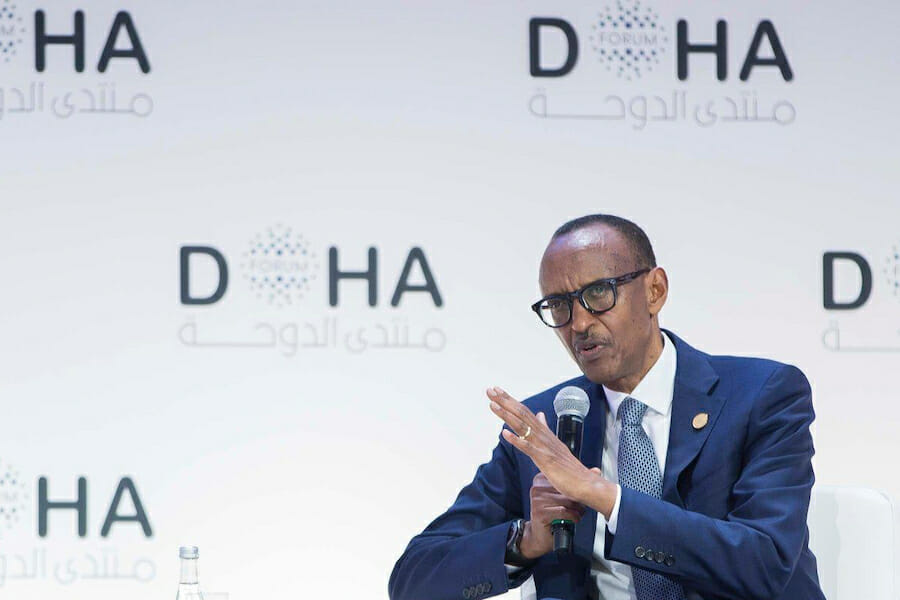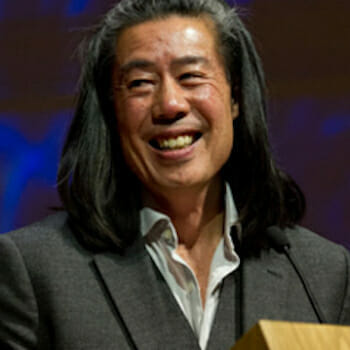
A New Non-Aligned Movement?
Established in 2000, the Doha Forum has grown year by year into an intriguing event in the world’s diplomatic and policy calendar. The 2019 edition, held on 14-15 December in the Sheraton, a landmark building shaped like a ziggurat, attracted 4,000 delegates. They came to listen to an assemblage of presidents, prime ministers, and ministers from several countries – as well as policy experts and academicians from even more. From the U.S. came Treasury Secretary Steve Mnuchin, Senator Lindsey Graham and Ivanka Trump.
They took their highly scripted places alongside the prime ministers of Malaysia, Somalia, Armenia and other figures like Rwanda’s President Paul Kagame.
The veteran Malaysian prime minister aside, the national leaders depicted themselves as young, highly technocratic, and committed against corruption. In perfect English, the Armenian leader spoke of the world using quantum physics as a metaphor. A physicist by training, he clearly enjoyed his ability to portray himself as not another professional politician. The Somali leader, again in faultless English, pitched his country – boldly if not completely successfully – as a desirable investment location. But he too seemed to enjoy breaking the stereotype of a leader from a war-torn and destitute country.
The shared characteristic of most of these leaders was that they were also Islamic. And they declared themselves as modernisers. The unspoken purpose was of course to do with the elephant not in the room, and that was to present a phalanx of allies against Saudi Arabia.
And that was why, of course, Ivanka Trump was there. Lightweight by contrast to her podium colleagues, she was there to indicate a U.S. commitment to Qatar that continued alongside its commitment to Saudi Arabia.
The heavy representation of Turkish ministers and officials indicated how the murder of Jamal Khashoggi had bonded the Turks and Qataris in an alliance highly critical of Saudi Arabia. And, from the podium, young Qatari ministers and technocratic civil servants spoke of how they had broken the Saudi blockade that began in 2017 – a blockade that began because of Qatari insistence on keeping diplomatic links and negotiations open with the Tehran and of not deepening an already volatile Sunni-Shi’a rift in the region.
When asked what was the chief benefit of relations with Iran, the young head of the Qatari sovereign wealth fund replied curtly and directly, ‘air space.’ And it was indeed air space over Iran that helped Qatar to break the Saudi blockade. Designed to weaken Qatar’s links with Iran, the blockade succeeded precisely in strengthening them.
“هل يمكن أن تتمتع دولة بالأمان بينما تحرم جيرانها منه؟ فحفظ #الأمن كمكافحة تغير المناخ لا يعرف حدوداً وهو غير قابل للتجزئة” سعادة السيد جواد ظريف، وزير الخارجية في #إيران. @jzarif pic.twitter.com/UeVk1sO10b
— Doha Forum (@DohaForum) December 15, 2019
So that the star turn of the Forum was the immaculately composed and poised diplomatic speech of the Iranian foreign minister. Regarded widely as a diplomat’s diplomat, he made no condemnations of anyone at all, but the subtle criticisms in his speech were clearly aimed at the Saudis and the Americans. Whether he would have been so subtle after the assassination of General Soleimani is another question and, in the early new year, against normal diplomatic convention, the U.S. prevented him from traveling to New York to speak before the UN.
All presentations were either a precisely timed ten minutes, or were discussions along the lines of a television studio interview – indeed often conducted by an Al Jazeera interviewer. Ivanka Trump was ‘handled’ in this fashion – albeit gently and given a diplomatic moment or two to shine. She did her part well, coiffed and reasonable, dropping no unscripted lines.
In all the Forum was a beacon of reasonableness – but of course, as with all such high-level gatherings, the real business took place in bilateral meetings behind the scenes. And they would have involved the U.S. Treasury secretary. And someone would have been running messages backwards and forwards from the Iranian foreign minister to ensure there was no visible bilateral encounter between him and the U.S. delegation, but exchanges of options and tentative possibilities all the same.
All clean and all deniable and all within the bounds of polite diplomacy.
But is this all there is to the Doha Forum? The curiosity of the Forum is that, in some ways, it is the latter-day descendant of the Non-Aligned Movement. All the prime ministers and presidents represented middle powers, and declared themselves as such. Rising middle powers. Committed to being not in the pockets of any superpower. But the difference from the old Non-Aligned Movement was that a great many of these middle powers had money. Sometimes a lot of money. And all were committed to development through technology, if not necessarily through quantum physics.
And like Qatar itself, they used the Forum to showcase themselves. For Qatar of course, emerging unscathed from the Saudi blockade, satisfied with its decision to entrust the trouble-shooting of the blockade to its young guns, and with a visible liberalism towards women – not so much in Western terms but again in contrast with the Saudi approach – it is portraying itself as an international centre.
In a way it always has. The Doha Round of trade negotiations put the country on the world’s diplomatic map. Al Jazeera has become one of the great media outlets of the world, and is used in the Qatari portrayal of itself as a location of free speech. That speech is more guarded of course at home than abroad – no one criticises the royal family and the powerful aristocratic families. And the most influential and powerful women in public life come from such families.
Even so, the Qatari determination to be a world centre continues with athletic events that will culminate in the football World Cup in 2022.
A huge emphasis on educational provision, centred on university education and research funded internationally by the Qatar Foundation, shows the country determined to keep producing young guns who can run things without elderly interference in the details.
In this sense of being a world centre, the Doha Forum plays an important role. A showpiece in the world’s annual round of diplomatic discussion events, it also brings together leaders of middle powers and may yet emerge into something more formal. An international pressure group, something committed to a modernising form of Islam, a counterweight of sorts to the superpowers, a moderator of Iranian extremes – even if that is now, following recent events, strategically difficult if not impossible? But the question remains whether something is happening or trying to happen in the desert by the sea, with its ziggurat and its ambitions.

